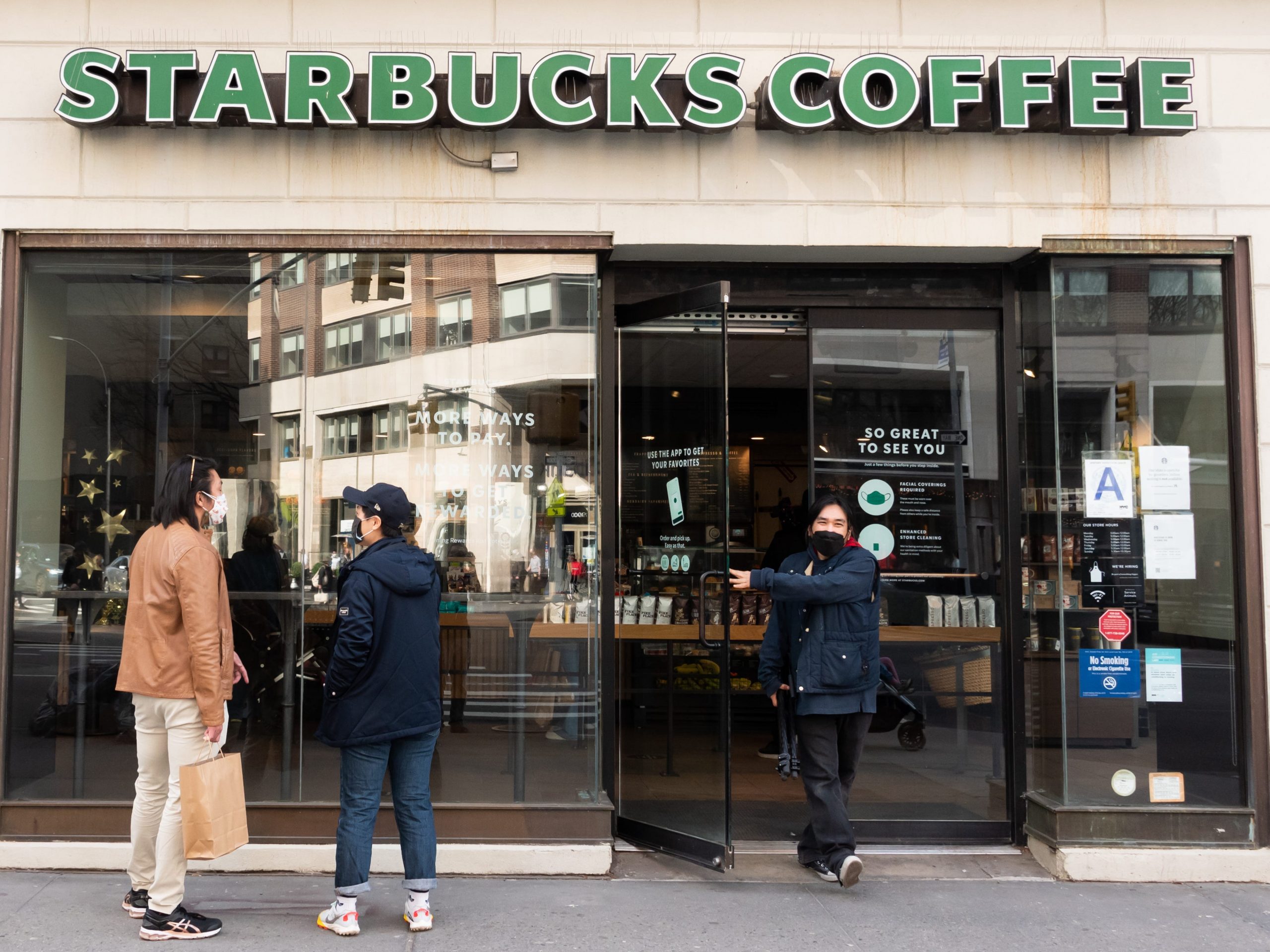
- Starbucks CEO Kevin Johnson says the coffee chain plans to hike up prices again this year.
- The chain's costs have spiraled because of inflation and the labor shortage.
- Starbucks raised prices twice in the past six months and said it didn't impact customer demand.
Starbucks hiked up menu prices on January 1 — and it's planning to rise them again this year.
Inflation and the labor shortage have put up costs for the coffee giant, which have recently been compounded by a surge in coronavirus cases as the Omicron variant spreads.
"We have already taken pricing actions this fiscal year, one in October 2021 and another in January 2022," CEO Kevin Johnson said at Starbucks' first-quarter earnings call Tuesday. "And we have additional pricing actions planned through the balance of this year, which play an important role to mitigate cost pressures."
Record numbers of Americans quit their jobs in 2021 in search of better wages, benefits, and working conditions, fueling a huge labor shortage that hit the restaurant industry especially hard.
Many restaurants were forced to hike up wages and offer better benefits so that they could get enough staff to stay open. However, many also had to change their operations to cope with staff shortages, including cutting their opening hours or closing their dining rooms.
John Culver, the company's chief operating officer, said that its staff turnover was higher than pre-pandemic and that the chain had had to reduce some of its store hours as a result. Alongside this, the company said that more staff had been calling off sick as Omicron spreads.
Culver said that because of the high turnover rate, Starbucks had hired so many new workers over the past quarter that it "rapidly increased our training costs well above historic levels."
But Culver said that its turnover rate was now stabilizing because of investments in wages and benefits. Starbucks has said it will hike wages this year to bring average pay to nearly $17 an hour.
"We're going to continue to make the right investments in our partners, whether that has to do with wage, whether that has to do with benefits or just really giving them the opportunity to grow with the company," Culver said. "And we feel very confident that we're going to come out of this in a much stronger place."
As well as causing Starbucks stores to scramble to find staff, the labor shortage has fueled inflation as manufacturers and transport companies cut production or increase wages.
"We anticipate supply chain disruptions will continue for the foreseeable future," Johnson said, noting that inflation and staff shortages had been amplified "well in excess of our expectations" because of Omicron.
Starbucks posted soaring sales, with total net revenues for the quarter to January 2 jumping 19% compared with the same period the previous year, and 13% on a two-year basis.
Other companies across the US have raised prices to deal with inflation and staffing shortages, too. Starbucks' price hikes in October and January hadn't had "any meaningful impact" on customer demand, Culver said.
But Rachel Ruggeri, the company's chief financial officer, said that higher sales and price hikes in North America "were largely offset by investments in-store partner wages, high inflation, as well as increased spend on new partner training, onboarding, and support costs to address labor market conditions."
Starbucks' first-quarter consolidated operating margin ultimately fell 0.3% from the same period the previous year, Ruggeri added.
The company revised its fiscal 2022 operating margin because of inflation, staffing problems, and the effects of COVID-19 surges.
"We have and we will continue to take intentional steps to offset these pressures, including selectively accelerating price increases, tightly managing numerous cost areas, as well as actioning throughput initiatives across our operations," Ruggeri said.
